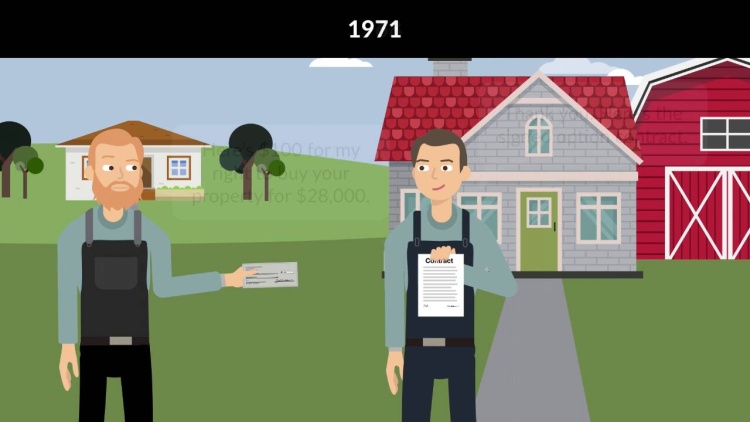Beall v. Beall
Court of Special Appeals of Maryland
413 A.2d 1365 (1980)

- Written by Denise McGimsey, JD
Facts
In 1968, Carlton Beall (Carlton) (plaintiff) bought a farm in Prince George’s County, Maryland, from Pearl Beall. Calvin Beall (Calvin), who was Pearl’s son and a second cousin to Carlton, together with his wife, Cecilia Beall (Cecelia) (defendant), owned a parcel that was bordered on three sides by the farm. When Carlton contracted to purchase the farm, he also executed an option agreement to buy Calvin and Cecilia’s property for $28,000. The option had a term of three years and was supported by consideration of $100. Carlton did not exercise the option. In 1971, a new option agreement between the Bealls was executed, for a term of five years and supported by another $100 in consideration. In 1975, the agreement for the five-year option was extended for an additional three years, to February 1, 1979. The extension was provided for in a writing addended to the five-year option and signed by both Calvin and Cecilia. The extension did not provide for additional consideration. In August 1977, Calvin died and Cecelia assumed full and sole ownership of the property. In May 1978 and September 1978, Carlton notified Cecelia that he was exercising the option to buy the property. She refused to sell and Carlton brought suit for specific performance. The trial court ruled in favor of Cecelia on the grounds that the purported option extension was not supported by consideration. Carlton appealed.
Rule of Law
Issue
Holding and Reasoning (Moore, J.)
What to do next…
Here's why 907,000 law students have relied on our case briefs:
- Written by law professors and practitioners, not other law students. 47,100 briefs, keyed to 996 casebooks. Top-notch customer support.
- The right amount of information, includes the facts, issues, rule of law, holding and reasoning, and any concurrences and dissents.
- Access in your classes, works on your mobile and tablet. Massive library of related video lessons and high quality multiple-choice questions.
- Easy to use, uniform format for every case brief. Written in plain English, not in legalese. Our briefs summarize and simplify; they don’t just repeat the court’s language.





